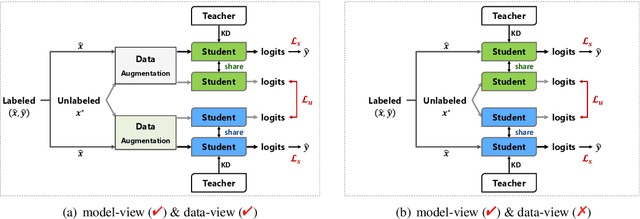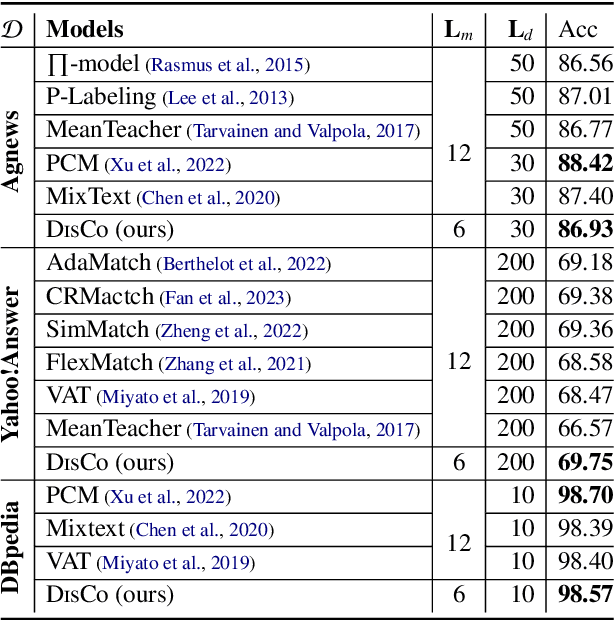Weifeng Jiang
Privacy-Preserving Federated Embedding Learning for Localized Retrieval-Augmented Generation
Apr 27, 2025Abstract:Retrieval-Augmented Generation (RAG) has recently emerged as a promising solution for enhancing the accuracy and credibility of Large Language Models (LLMs), particularly in Question & Answer tasks. This is achieved by incorporating proprietary and private data from integrated databases. However, private RAG systems face significant challenges due to the scarcity of private domain data and critical data privacy issues. These obstacles impede the deployment of private RAG systems, as developing privacy-preserving RAG systems requires a delicate balance between data security and data availability. To address these challenges, we regard federated learning (FL) as a highly promising technology for privacy-preserving RAG services. We propose a novel framework called Federated Retrieval-Augmented Generation (FedE4RAG). This framework facilitates collaborative training of client-side RAG retrieval models. The parameters of these models are aggregated and distributed on a central-server, ensuring data privacy without direct sharing of raw data. In FedE4RAG, knowledge distillation is employed for communication between the server and client models. This technique improves the generalization of local RAG retrievers during the federated learning process. Additionally, we apply homomorphic encryption within federated learning to safeguard model parameters and mitigate concerns related to data leakage. Extensive experiments conducted on the real-world dataset have validated the effectiveness of FedE4RAG. The results demonstrate that our proposed framework can markedly enhance the performance of private RAG systems while maintaining robust data privacy protection.
XRAG: eXamining the Core -- Benchmarking Foundational Components in Advanced Retrieval-Augmented Generation
Dec 24, 2024Abstract:Retrieval-augmented generation (RAG) synergizes the retrieval of pertinent data with the generative capabilities of Large Language Models (LLMs), ensuring that the generated output is not only contextually relevant but also accurate and current. We introduce XRAG, an open-source, modular codebase that facilitates exhaustive evaluation of the performance of foundational components of advanced RAG modules. These components are systematically categorized into four core phases: pre-retrieval, retrieval, post-retrieval, and generation. We systematically analyse them across reconfigured datasets, providing a comprehensive benchmark for their effectiveness. As the complexity of RAG systems continues to escalate, we underscore the critical need to identify potential failure points in RAG systems. We formulate a suite of experimental methodologies and diagnostic testing protocols to dissect the failure points inherent in RAG engineering. Subsequently, we proffer bespoke solutions aimed at bolstering the overall performance of these modules. Our work thoroughly evaluates the performance of advanced core components in RAG systems, providing insights into optimizations for prevalent failure points.
Lightweight Contenders: Navigating Semi-Supervised Text Mining through Peer Collaboration and Self Transcendence
Dec 01, 2024



Abstract:The semi-supervised learning (SSL) strategy in lightweight models requires reducing annotated samples and facilitating cost-effective inference. However, the constraint on model parameters, imposed by the scarcity of training labels, limits the SSL performance. In this paper, we introduce PS-NET, a novel framework tailored for semi-supervised text mining with lightweight models. PS-NET incorporates online distillation to train lightweight student models by imitating the Teacher model. It also integrates an ensemble of student peers that collaboratively instruct each other. Additionally, PS-NET implements a constant adversarial perturbation schema to further self-augmentation by progressive generalizing. Our PS-NET, equipped with a 2-layer distilled BERT, exhibits notable performance enhancements over SOTA lightweight SSL frameworks of FLiText and DisCo in SSL text classification with extremely rare labelled data.
LLM-Based Multi-Hop Question Answering with Knowledge Graph Integration in Evolving Environments
Aug 28, 2024



Abstract:The rapid obsolescence of information in Large Language Models (LLMs) has driven the development of various techniques to incorporate new facts. However, existing methods for knowledge editing still face difficulties with multi-hop questions that require accurate fact identification and sequential logical reasoning, particularly among numerous fact updates. To tackle these challenges, this paper introduces Graph Memory-based Editing for Large Language Models (GMeLLo), a straitforward and effective method that merges the explicit knowledge representation of Knowledge Graphs (KGs) with the linguistic flexibility of LLMs. Beyond merely leveraging LLMs for question answering, GMeLLo employs these models to convert free-form language into structured queries and fact triples, facilitating seamless interaction with KGs for rapid updates and precise multi-hop reasoning. Our results show that GMeLLo significantly surpasses current state-of-the-art knowledge editing methods in the multi-hop question answering benchmark, MQuAKE, especially in scenarios with extensive knowledge edits.
Trustworthy, Responsible, and Safe AI: A Comprehensive Architectural Framework for AI Safety with Challenges and Mitigations
Aug 23, 2024Abstract:AI Safety is an emerging area of critical importance to the safe adoption and deployment of AI systems. With the rapid proliferation of AI and especially with the recent advancement of Generative AI (or GAI), the technology ecosystem behind the design, development, adoption, and deployment of AI systems has drastically changed, broadening the scope of AI Safety to address impacts on public safety and national security. In this paper, we propose a novel architectural framework for understanding and analyzing AI Safety; defining its characteristics from three perspectives: Trustworthy AI, Responsible AI, and Safe AI. We provide an extensive review of current research and advancements in AI safety from these perspectives, highlighting their key challenges and mitigation approaches. Through examples from state-of-the-art technologies, particularly Large Language Models (LLMs), we present innovative mechanism, methodologies, and techniques for designing and testing AI safety. Our goal is to promote advancement in AI safety research, and ultimately enhance people's trust in digital transformation.
FedCQA: Answering Complex Queries on Multi-Source Knowledge Graphs via Federated Learning
Feb 26, 2024Abstract:Complex logical query answering is a challenging task in knowledge graphs (KGs) that has been widely studied. The ability to perform complex logical reasoning is essential and supports various graph reasoning-based downstream tasks, such as search engines. Recent approaches are proposed to represent KG entities and logical queries into embedding vectors and find answers to logical queries from the KGs. However, existing proposed methods mainly focus on querying a single KG and cannot be applied to multiple graphs. In addition, directly sharing KGs with sensitive information may incur privacy risks, making it impractical to share and construct an aggregated KG for reasoning to retrieve query answers. Thus, it remains unknown how to answer queries on multi-source KGs. An entity can be involved in various knowledge graphs and reasoning on multiple KGs and answering complex queries on multi-source KGs is important in discovering knowledge cross graphs. Fortunately, federated learning is utilized in knowledge graphs to collaboratively learn representations with privacy preserved. Federated knowledge graph embeddings enrich the relations in knowledge graphs to improve the representation quality. However, these methods only focus on one-hop relations and cannot perform complex reasoning tasks. In this paper, we apply federated learning to complex query-answering tasks to reason over multi-source knowledge graphs while preserving privacy. We propose a Federated Complex Query Answering framework (FedCQA), to reason over multi-source KGs avoiding sensitive raw data transmission to protect privacy. We conduct extensive experiments on three real-world datasets and evaluate retrieval performance on various types of complex queries.
DisCo: Distilled Student Models Co-training for Semi-supervised Text Mining
May 20, 2023



Abstract:Many text mining models are constructed by fine-tuning a large deep pre-trained language model (PLM) in downstream tasks. However, a significant challenge is maintaining performance when we use a lightweight model with limited labeled samples. We present DisCo, a semi-supervised learning (SSL) framework for fine-tuning a cohort of small student models generated from a large PLM using knowledge distillation. Our key insight is to share complementary knowledge among distilled student cohorts to promote their SSL effectiveness. DisCo employs a novel co-training technique to optimize multiple small student models by promoting knowledge sharing among students under diversified views: model views produced by different distillation strategies and data views produced by various input augmentations. We evaluate DisCo on both semi-supervised text classification and extractive summarization tasks. Experimental results show that DisCo can produce student models that are 7.6 times smaller and 4.8 times faster in inference than the baseline PLMs while maintaining comparable performance. We also show that DisCo-generated student models outperform the similar-sized models elaborately tuned in distinct tasks.
 Add to Chrome
Add to Chrome Add to Firefox
Add to Firefox Add to Edge
Add to Edge